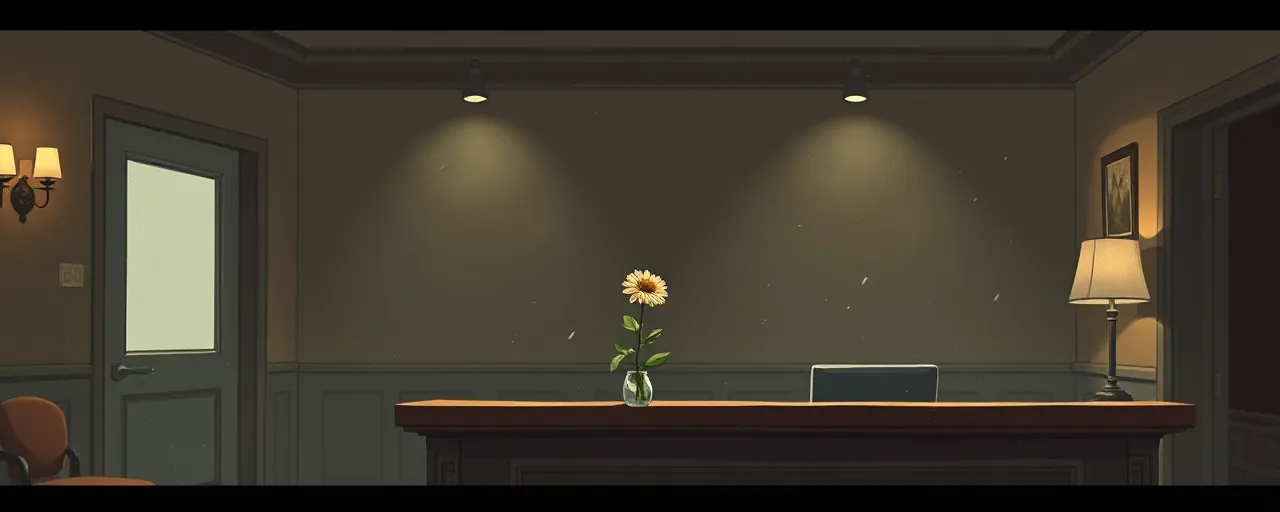A Reign of Terror in the Quiet Hours
In the pre-dawn stillness of late 2022, Naim-Shahid Jumah Austin turned Pennsylvania’s hotel lobbies into scenes of dread. Armed with a .45-caliber pistol, he struck six times in three months, targeting lone workers at front desks across Chester, Delaware, and Montgomery counties. Each robbery was a calculated assault on the vulnerable, a stark reminder that for those who serve travelers in the early hours, safety is an illusion too often shattered by violence.
Austin’s spree ended with his arrest on December 12, 2022, minutes after terrorizing a Holiday Inn Express in West Chester. This week, a federal judge sentenced him to 144 months behind bars, a decision U.S. Attorney David Metcalf hailed as a triumph of accountability. Yet, as the gavel fell, a deeper question lingered, one that cuts to the heart of our values: does locking away one man truly mend the lives he upended, or are we merely papering over a system that leaves workers exposed?
This isn’t just about one criminal’s fate. It’s about a society that celebrates punishment while ignoring the human wreckage left behind. Hotel employees, often low-wage workers with little recourse, deserve more than a headline about a lengthy prison term. They need protection, support, and a justice system that doesn’t stop at incarceration but dares to address the root causes of their peril.
The Human Cost of a Broken Safety Net
Picture the scene: a lone clerk at 3 a.m., tallying receipts, when a gunman bursts in. That was the reality for Austin’s victims, who faced not just the barrel of a pistol but the shattering of their sense of security. Studies paint a grim picture of what follows such trauma. Over half of armed robbery victims report lingering anxiety and fear years later, with many grappling with post-traumatic stress disorder or depression. For hotel workers, often juggling multiple jobs to survive, the psychological toll is a burden they can’t afford.
Employers hold a critical key to recovery. Research shows that supportive responses, like offering counseling or paid leave, can help workers heal and return to their roles. Yet too many in the hospitality industry fall short, leaving staff to fend for themselves out of financial necessity rather than readiness. Austin’s 12-year sentence does nothing for the clerk who now flinches at every late-night shadow, nor does it compel hotel chains to rethink their paltry security measures.
Contrast this with the FBI’s chest-thumping rhetoric. Special Agent Wayne A. Jacobs called Austin a ‘brazen violent criminal’ whose punishment proves law enforcement’s resolve. Sure, the coordinated sting that nabbed him, involving local police and federal agents, showcases impressive teamwork. But celebrating multi-agency heroics rings hollow when the workers left traumatized get no such spotlight. Justice isn’t served by collaboration alone; it demands follow-through for those who bear the scars.
The hotels Austin targeted, from Marriott to Holiday Inn, operate in an interstate commerce web that justifies federal charges under the Hobbs Act. That law, born in 1946 to tackle extortion, now snares robbers like Austin with hefty sentences, especially when guns are involved. Critics who argue it overreaches, pulling minor thefts into federal courts, miss the point here. These weren’t petty crimes; they were acts of terror. Still, piling years onto Austin’s sentence won’t undo the damage, nor will it force a reckoning on why these workers were so exposed in the first place.
A Call for Real Accountability
Let’s talk solutions that actually matter. Hotels in 2025 boast AI surveillance and biometric locks, flashy upgrades that promise safety. But when a gunman strikes at 4 a.m., those gadgets mean little if no one’s there to act. Early morning crimes thrive in the shadows of understaffed shifts and dim parking lots, patterns well-documented from Chicago’s restaurant break-ins to Pennsylvania’s hotel heists. Enhanced lighting, reinforced doors, and real security guards, not just cameras, could have deterred Austin’s spree.
Corporate giants rake in billions from travelers, yet they skimp on the basics: training staff for emergencies, hiring enough bodies to cover the night, ensuring trauma support is more than a pamphlet. It’s not enough to lean on law enforcement after the fact. The FBI and local police did their job, but prevention beats prosecution every time. Hotels need mandates, not suggestions, to protect their people, backed by penalties that hit their bottom line if they fail.
Some will cry foul, claiming tougher regulations burden businesses already stretched thin. Let them explain that to the worker who can’t sleep without nightmares of a gun in her face. Profit margins don’t trump human lives, and it’s past time policymakers in Washington stopped coddling corporations and started prioritizing the people who keep them running. Austin’s sentence is a start, but it’s not the finish line. Real justice means shielding workers before the next predator strikes.
Beyond the Bars
Naim Austin’s 144 months in prison mark a chapter closed, but the story doesn’t end there. His crimes laid bare a truth we can’t ignore: our reliance on punishment over prevention leaves too many dangling in harm’s way. Hotel workers, the backbone of an industry that thrives on hospitality, deserve a system that values their safety as much as it does locking up their tormentors.
This moment demands more than applause for a judge’s ruling. It calls for a shift, a fierce commitment to bolster security, support survivors, and hold employers accountable. Anything less betrays the clerks still standing behind those desks, waiting for the next threat to come out of nowhere. We can do better, and we owe it to them to try.
